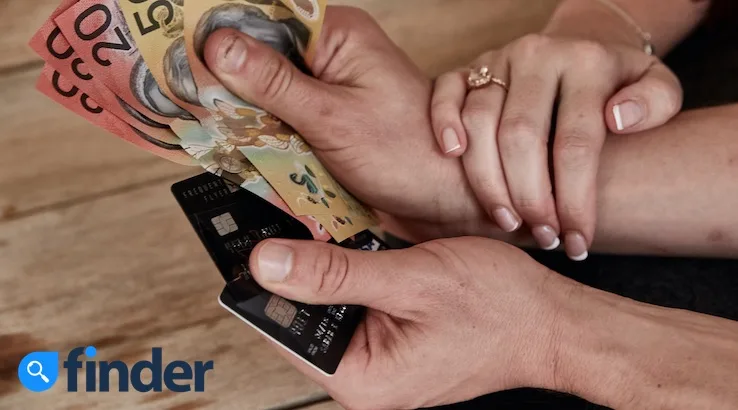Lockdown scam risks rise: Expert tips to avoid the biggest cons

Big spikes in cybercrime, more time working from home and sneaky tactics have seen scammers target more people during the pandemic – but you can stop them.
The Australian Competition and Consumer Commission (ACCC) has said scammers "used the COVID-19 pandemic to scam and take advantage of people from all walks of life during this crisis."
This led to a record-breaking loss of over $851 million – and Finder analysis shows that there was a 23% increase in reports of scams to the ACCC in 2020.
Victoria, which went through an extended lockdown in 2020, reported the highest losses in Australia for the first time ever.
With millions of people across the country in lockdown right now, here's a look at some key risks and expert insights on how to stay safe.
Unsecured devices
Data from the ACCC shows a 184% increase in scammers getting access to people's home computers, with losses at more than $7.2 million for the year so far.
Digital privacy expert Daniel Markuson from NordVPN said weak security is a big risk for personal devices.
"In March 2020, when the first lockdowns came into force, hackers started taking advantage of the confusion and lowered security protocols connected to people working at home to cause all kinds of harm," he told Finder.
Markuson said people working at home are still "extremely vulnerable to cybersecurity attacks", with a recent survey from NordVPN showing that 62% of employees use personal computers that may not have the same level of security a work computer has.
People's home networks and devices might be under increased likelihood of attack, as attackers hunt for potentially weaker protections.”
He said one way to improve security is to separate work and personal information.
"This way, if one account or device is breached, the other will remain safe."
Faking authority, connection and emotions
The latest ACCC Targeting Scams report shows big increases in health and medical scams, threat-based scams and phishing (among others).
These types of scams can prey on people's emotions and make them more likely to give up personal information, such as credit card or bank account details.
In some cases, people will pay a scammer without realising they've been tricked – an issue the ACCC did see in 2020.
We saw scammers claiming the government restrictions meant people could not see items in person before purchase. This was a common ruse in vehicle sale and puppy scams, which both had higher reports and losses.”

Scamwatch also reported a record-breaking number of romance and dating scams in 2021, with a cost of nearly $39 million – and more people under the age of 35 reporting they'd fallen for them.
Investment scams, which cost Australians $66 million in losses, often focus on hope and aspirations, while other financial scams and medical scams often use fake government or business details to make people think they are legitimate.
"Scammers may pretend to have a connection with you. So it's important to stop and check, even when you are approached by what you think is a trusted organisation," the Scamwatch COVID-19 information page said.
Breaking down security features
Even when scammers use fear, hope or some other form of connection, they usually need to consider a number of security features before they can get what they want.
For example, 2-factor authentication is used to protect credit cards, bank accounts and even some social media networks. Usually, it just means you'll get a text before logging in, making changes to your account or transferring money.
But some scammers factor it into their strategies.
"We have seen a spike in scammers asking consumers to share their One Time Password – an additional security measure whereby customers are sent a code to confirm the transaction is legitimate," Citi Australia's head of cards and loans, Choong Yu Lum, told Finder.
We know scammers use periods of uncertainty like COVID to increase attacks on vulnerable Australians. Now, more than ever, it's important to stay vigilant – never share your personal details with anyone, especially your PIN or password.”
When I experienced credit card fraud a couple of years ago, I realised first-hand just how hard it is to stay calm. But reporting it quickly and asking questions were 2 of the most valuable steps I took (and they helped me get it sorted quickly).
5 tips to stay safe from scams in 2021
- Don't reply to emails, text messages or phone calls from unfamiliar accounts. If you want to find out if a message is authentic, directly contact the person or organisation using official phone numbers or websites.
- Don't click on unfamiliar links. The list of COVID-19 scams on the Scamwatch website shows many of them use fake logos and website addresses to trick people into clicking on them. NordVPN's Daniel Markuson also said email and social media messages may have risky or infectious links "even if the sender seems trustworthy".
- Protect your devices. Markuson said installing a VPN (Virtual Private Network) for your Wi-Fi router will protect your home network. "Installing antivirus [software] and keeping the device's software up to date also helps in preventing malware from infecting your device," he said.
- Stay informed. Getting information about the latest scam risks helps you know what to look out for. The Scamwatch website regularly updates its list of known scams – many other banks and organisations also have warnings for any known scams.
- Report any issues. If you suspect a scammer has contacted you, report it to the ACCC and any other authorities involved. And if you think your financial details are compromised, contact your bank or lender as soon as possible.
Want more protection for your accounts? Find out how VPNs work, check out Finder's guide to credit card fraud.
Pictures: Finder (Luke Dubbelde)

